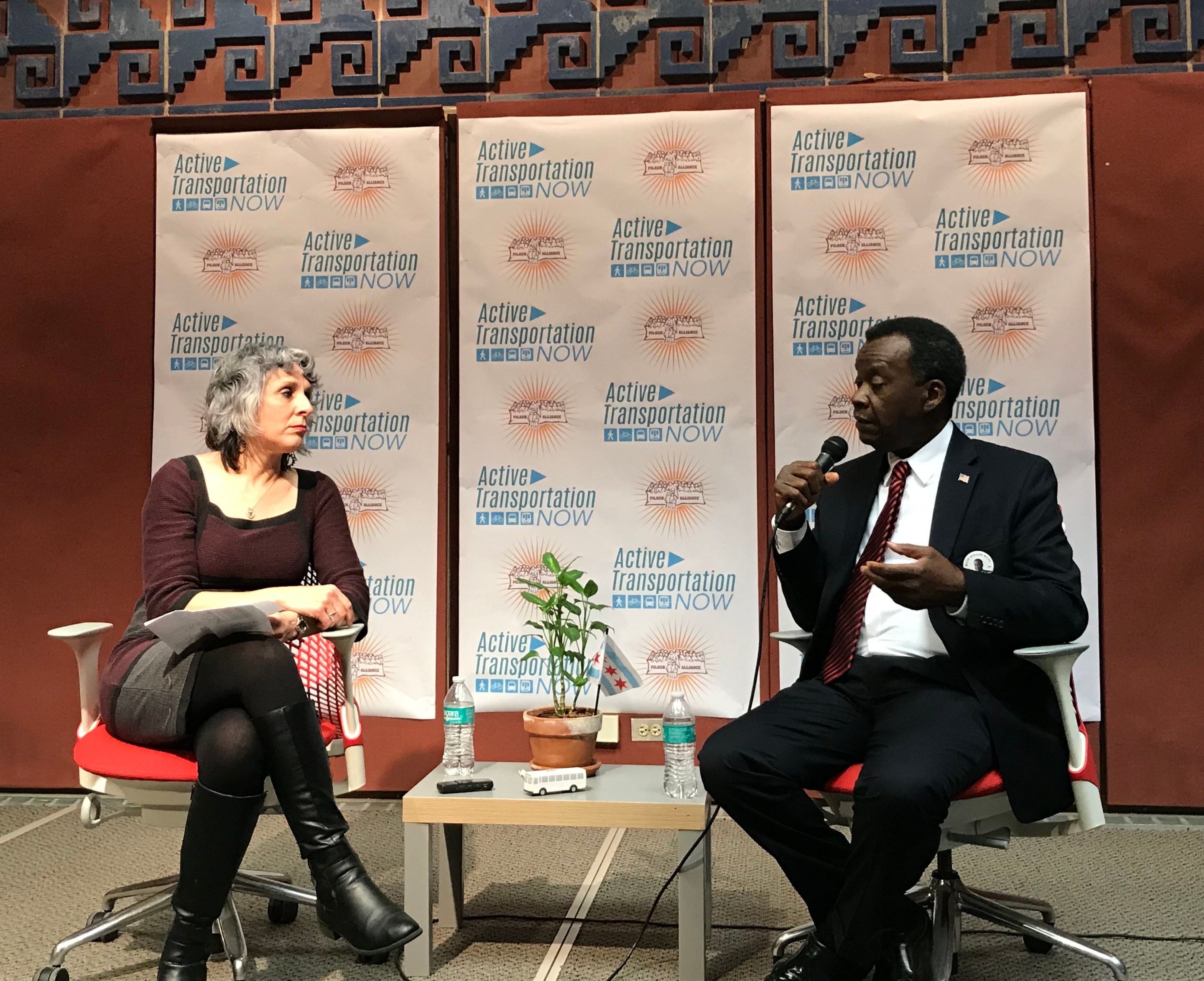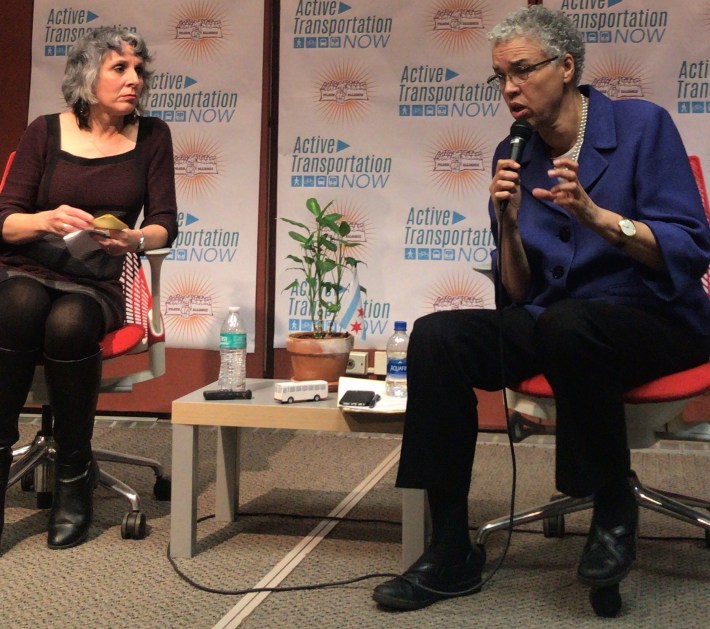On Tuesday, January 16, nine mayoral candidates gathered at Rudy Lozano Library in Pilsen to discuss how to improve Chicago transit service. Co-hosting the forum were Pilsen Alliance, a local grassroots social justice organization; and Active Transportation Now, a 501 (c)4 sister organization of the Active Transportation Alliance whose mission is to educate voters and candidates about transportation issues. Moderating the forum was Chicago Tribune transportation reporter Mary Wisniewski.
To start off the night, Active Transportation Alliance Campaign Organizer Robert Schultz III gave a brief intro, as well as Jose Requena from the Pilsen Alliance. The format was a one-on-one style Q&A with each candidate.
The questions ranged on topics from funding transit to whether candidates ride the bus. A major theme was whether candidates support creating bus lanes.
"I would be interested in increasing bus lanes on north and south Lake Shore Drive," said Dorothy Brown. "We also need to have discounted fares for seniors and low-income individuals and discounted fares for State Street and Michigan Avenue to increase shopping."
Brown also supported adding bus lanes on Western and Ashland Avenue.
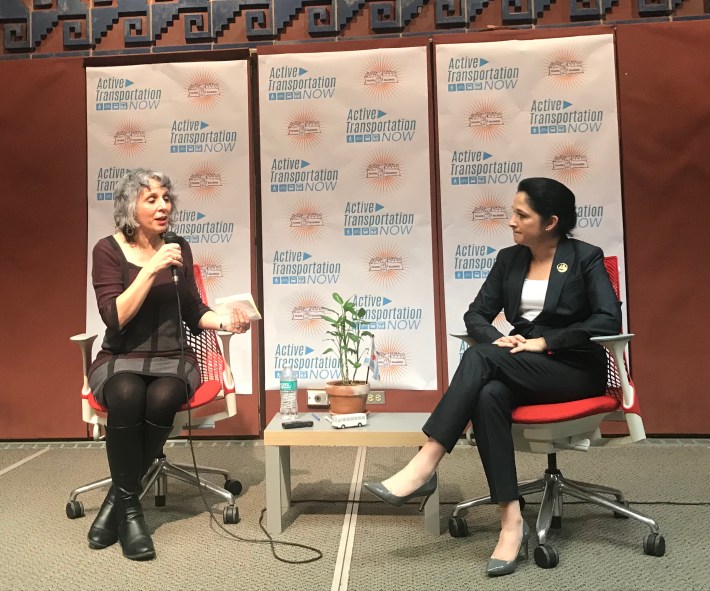
Adding bus lanes can be a contentious issue, but Illinois Comptroller Susana Mendoza said it can be addressed.
“It’s all about engaging the public and the community,” she said. “Aldermen have so much say with what goes on in their ward. The mayor also has to lead.”
A major part of improving the CTA is also about identifying funding sources and pressuring Springfield lawmakers.
“My first call would be to the governor,” Brown said. “This is something that can be done. I would also designate a transportation TIF fund to help with the CTA budget.” Chicago is the only city in Illinois that can create Transit TIF districts, which don't divert funding from the Chicago Public Schools, and divert less money from other taxing agencies than regular TIF districts. Chicago has only one Transit TIF district, to co-fund the CTA's Red & Purple Modernization Project (RPM), but City Council can designate three additional districts for three projects designated in the state law.
Former Chicago police chief Garry McCarthy had a similar sentiment about how to call on Springfield for funding.
“It’s about personal relationships. There are a lot of people from Chicago in Springfield,” he said. “We need to get them to look out for the people of Chicago.”
When asked about how to work with the Federal Transit Administration, McCarthy said Chicago needs to have a better relationship with the current federal government.
Bigger questions regarding increasing ridership were also questions the candidates tackled.
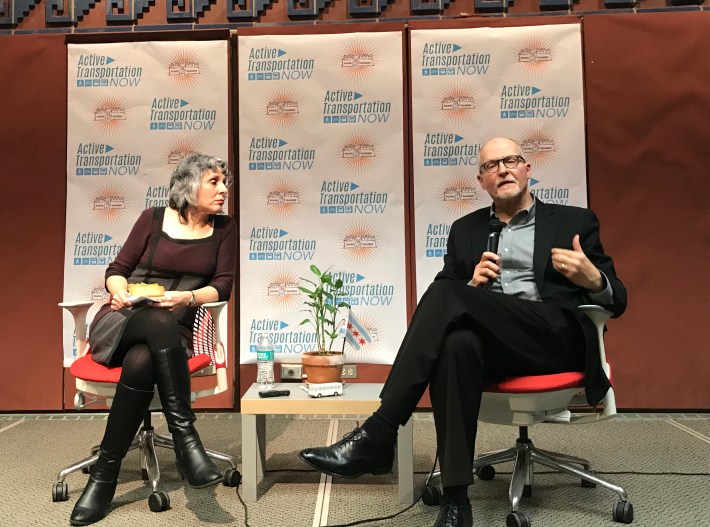
“We can improve ridership if we simply make it a priority,” said former Chicago Public Schools CEO Paul Vallas. “If we set a goal of increasing use of mass transit, we need to evaluate why it’s not being used. The purpose of mass transit is to support the communities.”
When asked about how to maintain bus routes amid budget constraints, he pointed to ride-share as one issue of ridership decline.
“People shouldn’t be driving or [taking] Lyft or Uber," he said. “They should be taking mass transit. We need to come up with strategies.
Vallas agreed that bus lanes are a potential solution and also considering the location of bus stops, as well as traffic signal priority.
“One needs to also get a handle on the community perspective first,” Vallas said in reference to these ideas. He also pointed to the proposed TIF districts at Lincoln Yards and in the South Loop as an example of misplaced priorities in our city.
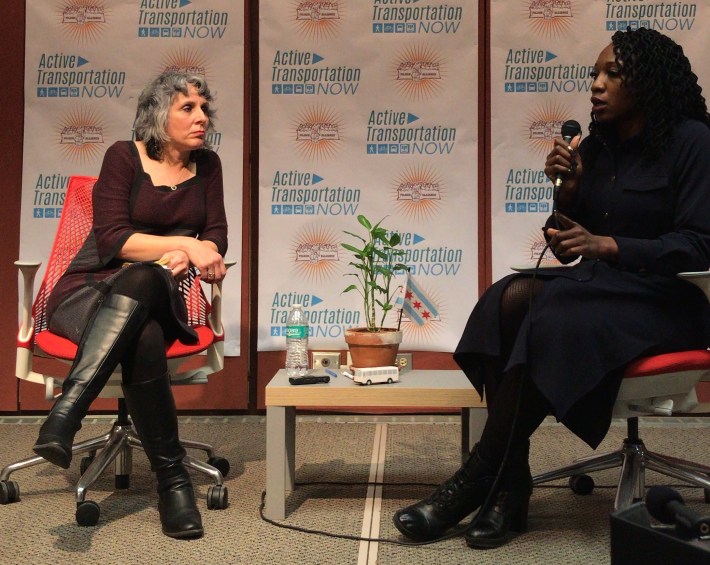
Amara Enyia also brought up ideas of potential funding sources for transit.
“I actually think we should evaluate what the city is getting from ticketing people on bikes or red light cameras,” she said. She proposed finding ways to reallocate funds to help with transit in underserved areas.
Enyia also supported means testing for low-income residents as a way to explore a more equitable fare structure.
Another important theme that emerged from the conversation was how to address larger economic patterns in the city that have most likely impacted bus ridership and decreased density in certain areas.
“One of the things that affects safety on the bus is density of population,” Enyia said. “A lot of neighborhoods have lost population. If we are looking at jobs created in last few years, they’re not for people in those communities. We’re not creating an economy for those riders.”
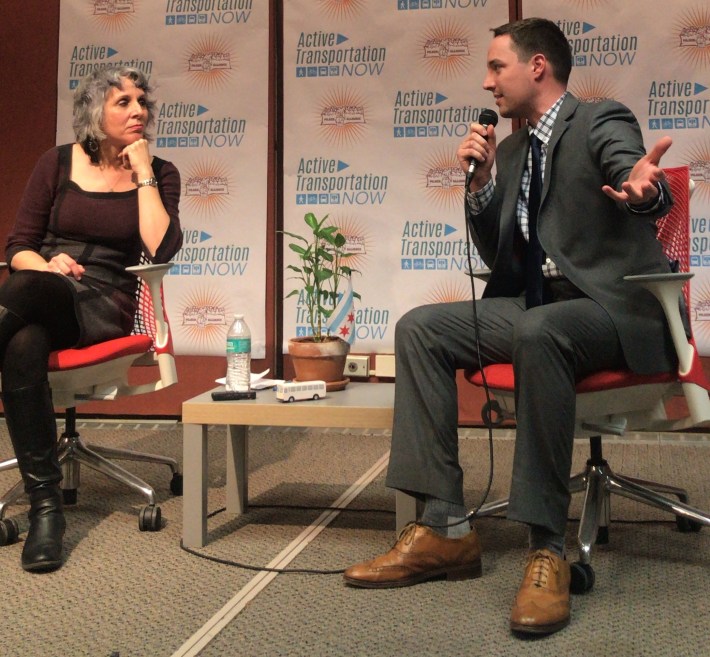
Density of neighborhoods is a big factor in creating safe bus stops and whether riders feel comfortable standing there by themselves. While candidates agreed crime is an issue, State Representative Lashawn K. Ford emphasized the importance of not creating more avenues to prisons.
“We need to do everything we can do to make sure this isn’t a punitive city,” he said.
Ford also expressed optimism about being able to acquire funding from Springfield with a new governor in place. Cook County Board President Toni Preckwinkle agreed with this sentiment regarding a capital bill.
“This looks like it will be a priority for [Governor] JB [Pritzker],” she said.
Preckwinkle also brought up the idea of a universal fare card to streamline the transit system. It should be noted that people with smartphones can use the Ventra app to buy Metra tickets, which can debit the stored value on their Ventra card.
“That would be a priority for me,” she said. “We have a ways to go with the relationship with Pace, CTA, and Metra. We need one transportation network as a long-term goal.”
Preckwinkle also suggested having a long-range transportation study for our city and taxing ride-share as a way to fund transit.
The last candidate to take the stage was John Kozlar and he echoed earlier sentiments of needing more bus lanes in the city, in addition to making CTA more accessible for residents with disabilities. When asked how to deal with backlash about bus lanes from business owners, Kozlar took a strong stance.
“You need to elect a mayor who is fierce and will stand up for residents.”
